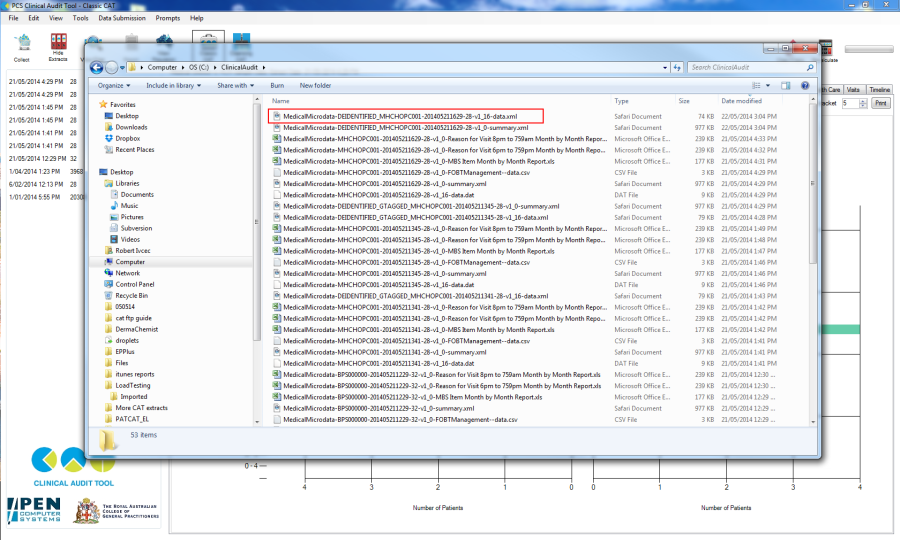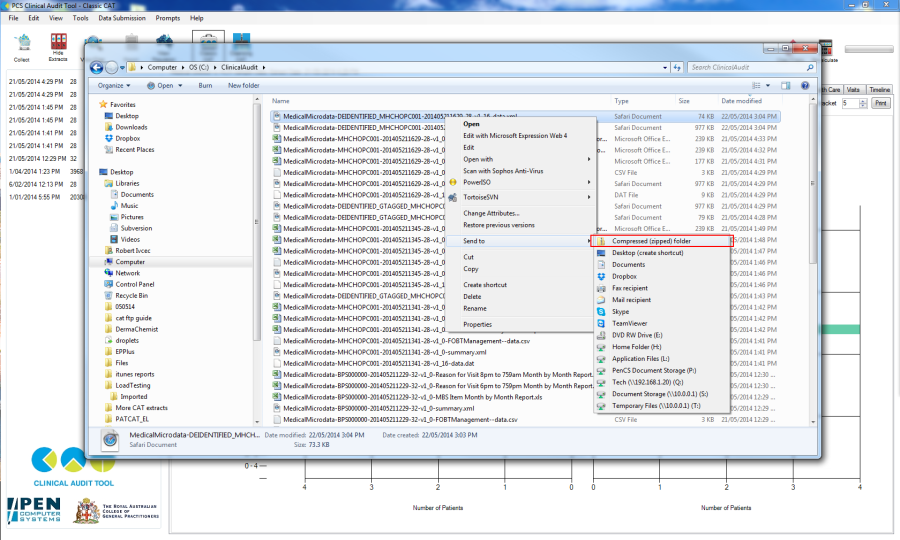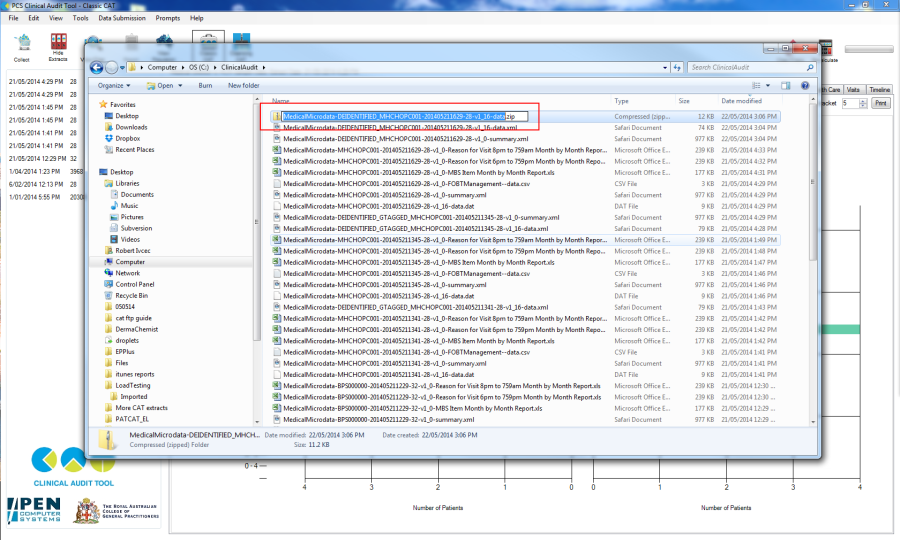OPTIONAL - If the de-identified extract includes a large number of patients (e.g. more than 4000 patients) or the practice has a slow internet connection, it is advised that you compress the extract into a ".zip" file before undertaking the import process. This will create a new file which is significantly smaller in file size making it faster to upload. If you do not want to do this, skip to Section 6.3. When using the 'Send to PAT CAT' functionality, the extract will be compressed before being uploaded.
- Open the directory where the extracts are stored (eg C:\ClinicalAudit) using My Computer or Explorer.
Figure 50: Data XML file
- Find the de-identified extract file in the directory. Sorting the files by date modified may help you to find the file if there are a lot of extracts. When you have found the file, RIGHT CLICK and select Send to -> Compressed (zipped) folder.
NOTE: The file name MUST have the text "-data" near the end of the name. e.g. "MedicalMicrodata-DEIDENTIFIED_PRACTICEID123-201405211629-28-v1_16-data.xml".
Figure 51: Compress File
A new file will be created with ".zip" as the extension. This file should be substantially smaller than the original extract size
IMPORTANT: Do NOT change the name of this file in any way.
Figure 52: Identify Compressed Data File


